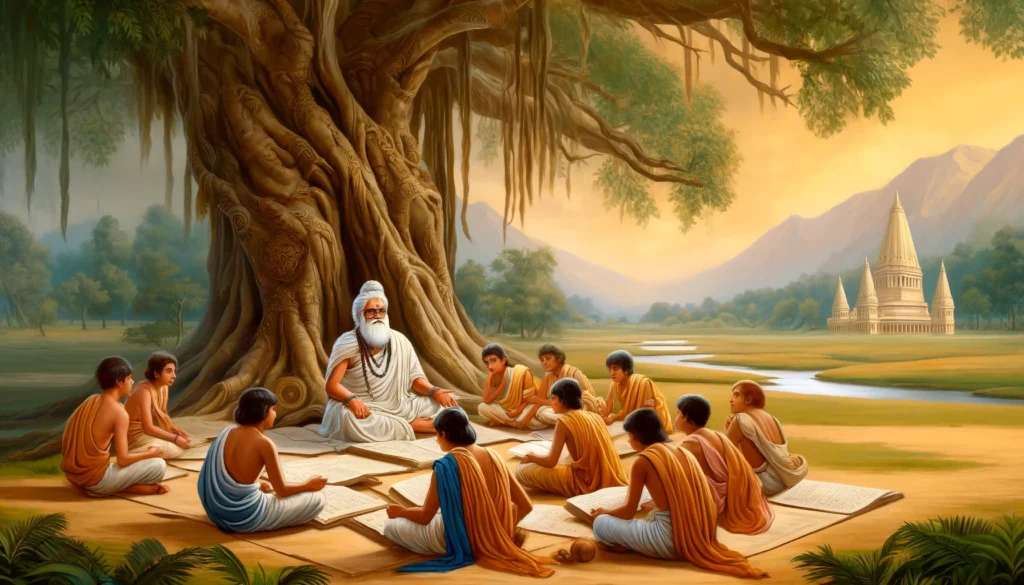
Gurukul Reimagined: Bringing Timeless Values to Modern Education
In today’s world, where academic pressure, screen time, and intense competition are affecting students’ well-being, there is a growing interest in the ancient Indian Gurukul system of education. While this traditional approach may not perfectly fit the needs of modern society, its core principles still provide a holistic and balanced alternative to current educational models.
The British education system, introduced in 1835 by Lord Macaulay, replaced India’s indigenous learning methods with a structure focused on rote memorization and standardized exams. Over the years, this shift overshadowed personal development, practical skills, and emotional growth. Today, educators and parents are questioning whether elements of the Gurukul system could offer a solution to the challenges faced by modern education.
Here’s why the Gurukul system remains relevant in today’s world:
- Practical Life Skills
Gurukuls emphasized practical life skills such as cooking, cleaning, farming, and time management. This holistic approach helped students become self-sufficient, equipping them with the tools to navigate the challenges of daily life with confidence. - Learning in Natural Surroundings
Education took place in natural settings—under trees and surrounded by the natural world. This environment fostered a deep respect for nature and provided a peaceful setting for focused learning. In today’s environmentally-conscious world, reconnecting children with nature offers therapeutic benefits and vital lessons in sustainability. - Tailored, One-on-One Learning
The Gurukul system prioritized personalized learning. Teachers provided individual mentoring, adjusting their methods to suit each student’s strengths and needs. This approach promoted academic, emotional, and moral development—unlike the crowded, standardized classrooms common today. - Memory Enhancement Through Repetition
Rather than relying on rote memorization, the Gurukul method employed repetition and chanting to boost long-term memory retention. This technique, similar to modern-day audio-visual learning, helped strengthen cognitive skills and mental discipline. - Education Beyond Grades
The Gurukul system emphasized internal growth, knowledge, and character development over academic scores. This focus on personal development reduced stress and transformed education into a journey of self-improvement rather than a race for grades. - Starting the Day Early
In Gurukuls, the day began at sunrise, aligning with natural rhythms. Research shows that early risers tend to have better concentration, memory, and overall mental health. Reintroducing this practice could help students develop better focus and healthier routines. - Self-Study and Daily Reflection
Daily self-study and reflection were key components of Gurukul education. Students were encouraged to review their lessons regularly, fostering a habit of continuous learning and self-reflection—an essential practice for developing lifelong learning skills.
Integrating Ancient Wisdom for a Brighter Future
Though the Gurukul model may seem outdated, its timeless values of mindfulness, discipline, simplicity, and connection with nature offer a refreshing alternative to the fast-paced and pressure-filled education systems we see today. As society seeks more meaningful learning experiences, integrating elements of the Gurukul approach could nurture a generation that is grounded, resilient, and driven by values.








